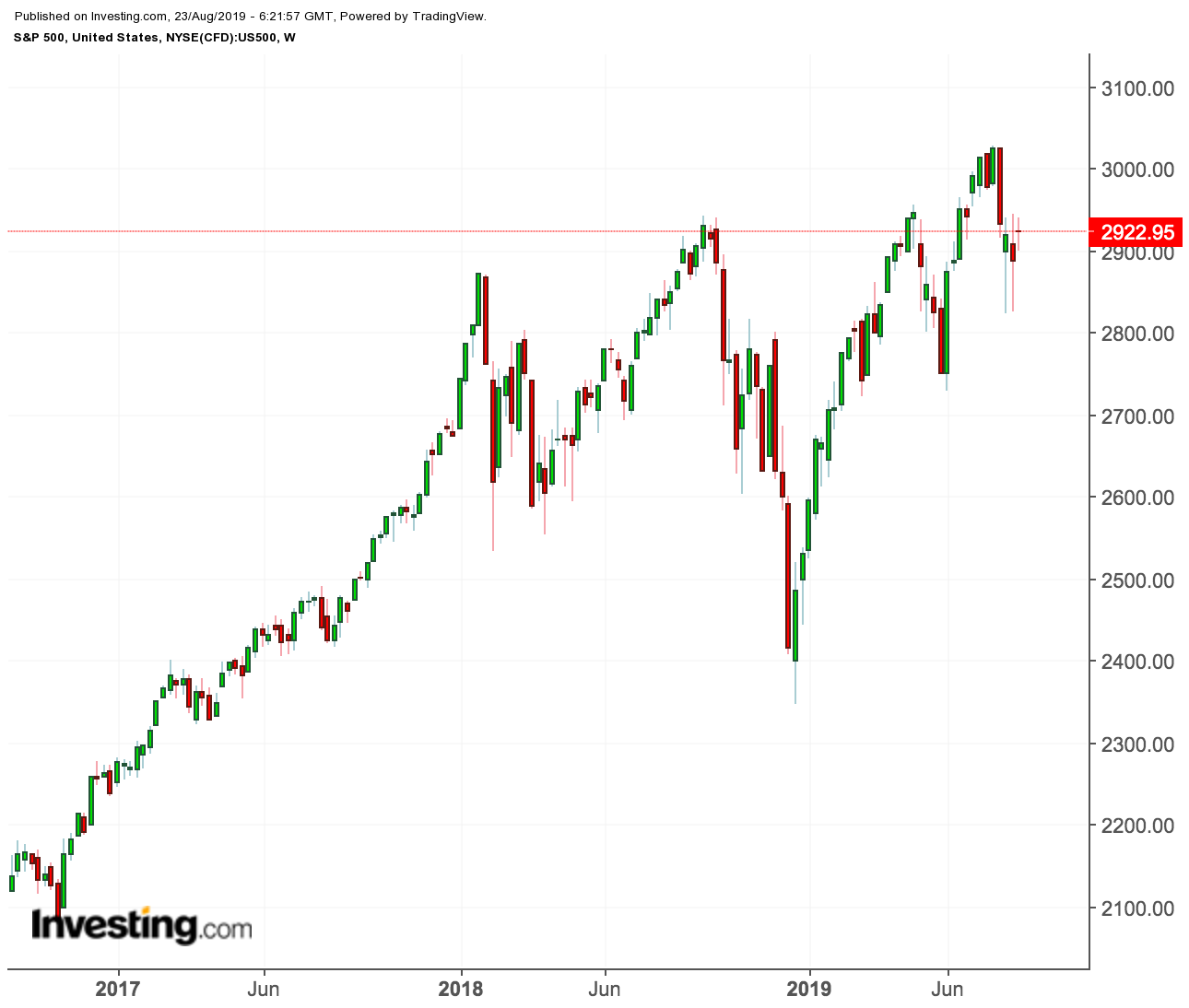With the second-quarter earnings season almost over, it’s becoming clear that the companies which powered the market’s nine-year bull-run are coming under pressure and may not have much more steam left to fuel the rally.
The combination of slowing earnings growth and the economic headwinds coming from the U.S.-China trade war has also convinced some analysts that the U.S. markets are close to the peak of the current economic cycle.

This bearish outlook has further been strengthened this month after yields on the 10-year U.S. Treasury notes briefly fell below two-year yields. The yield curve inversion, the first since 2007, has been one of the stock market’s most reliable signals of a recession since 1978.
Some of the U.S. largest technology companies, including Facebook (NASDAQ:FB), Apple (NASDAQ:AAPL) and Intel (NASDAQ:INTC) have been hurt by weakening demand for their products and services in the recent months.
Facebook (NASDAQ:FB) stock has lost more than 10% after warning its growth was slowing, while Netflix (NASDAQ:NFLX) has shed about 18% of its value after missing its own forecasts for user growth by more than a million subscribers. Intel (NASDAQ:INTC), another tech titan, has been under selling pressure after posting disappointing earnings.
Industrial Companies Are the Hardest Hit
The earnings weakness was more pronounced in the industrial companies — an area of the market which is closely tied with the overall health of the economy. Caterpillar (NYSE:CAT) lowered its profit forecast as the machinery giant faced a slowdown in China due to higher tariff and labor costs.
Deere & Co . (NYSE:DE) last week provided stronger evidence that the slowdown in earnings for industrial companies will be more widespread when it lowered its forecast for the year, and said fewer purchases of machinery from the U.S. farmers are hurting the business. The group representing industrial stocks has fallen 3.9% in August—more than the broader S&P 500’s 1.9% decline.
Retail, another area of the market where some companies have started to feel the pain of an economic adjustment, has shown a mixed performance in the past quarter. While big-box retailers, Walmart (NYSE:WMT) and Target (NYSE:TGT), have reported strong sales growth and more customers visiting their stores, some middle-market chains continued to struggle.
That performance is mainly in line with the strength in U.S. consumer spending, which is benefiting those retailers who are spending massively to improve their online sales and providing convenience to customers.
Bottom Line
Q2 earnings and companies' forecasts for the remaining part of the year suggest that it will be risky for investors to bet on corporate America to come again and rescue the market in the second-half.
Earnings of the companies represented in the S&P 500 will grow 1.5% this year, FactSet projections show, far short of estimates for growth of more than 6% that analysts initially forecast in January, according to a recent report in the Wall Street Journal that also highlighted that a few analysts now predict earnings could end up contracting for 2019 as a whole.
Without healthy growth in profit, stocks going forward will be more vulnerable to economic shocks coming from the lingering U.S.-China trade dispute, along with some signs of weakness in U.S. growth.
